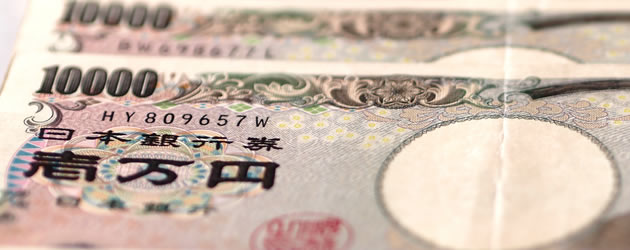
Earlier this week the Yen gained by 3 per cent against the US Dollar, its most significant two-day advance for nearly three years. However, since then various circumstances have led to the Asian currency dipping.
The Japanese Yen exchange rate was in the region of 98.0800 Yen to one US Dollar as of 09:50 am GMT
Yesterday the Yen fell by 0.8 per cent, and this decline was extended by an additional 0.8 per cent today.
With investor’s interest in higher-risk assets returning following a rebound in commodities, the safe-haven Yen and its US counterpart have broadly softened. The Yen’s slide was also enabled by increasing speculation surrounding this week’s two-day G-20 meeting.
It is thought that the Group of 20 Finance Ministers and central bank chiefs will discuss currency devaluation when they meet in Washington. However, some industry experts are expecting that the Bank of Japan will escape censure regarding its recently introduced fiscal policy, which triggered extensive Yen declines.
When the G-20 last met, prior to the BOJ’s decision to double bond buying, it intimated that the Japanese central bank could take steps to reactivate its economy as long as it didn’t publically promote drops in the Yen.
And yesterday Japan’s actions received support from the International Monetary Fund’s Chief Economist. Olivier Blanchard asserted that the recent weakness in the Yen was a ‘logical consequence’ of Japan’s ‘appropriate’ fiscal policy.
Also speaking of the Bank of Japan’s measures, Russian finance official Ksenia Yudaeva stated: ‘We understand Japan has to take some measures to stimulate its economy. The problem with currency wars is that no one can win them, so it’s better to avoid them.’

Comments are closed.